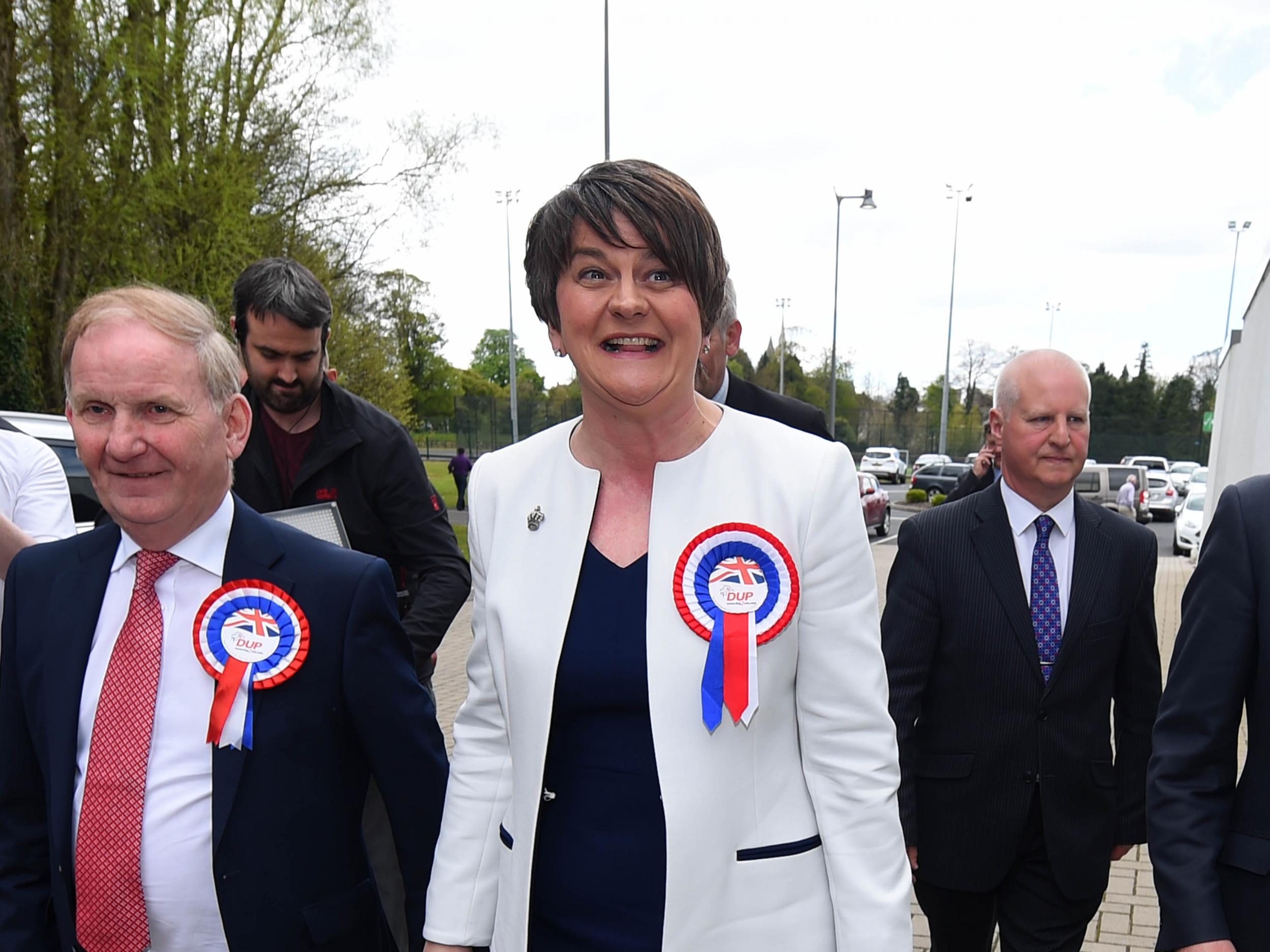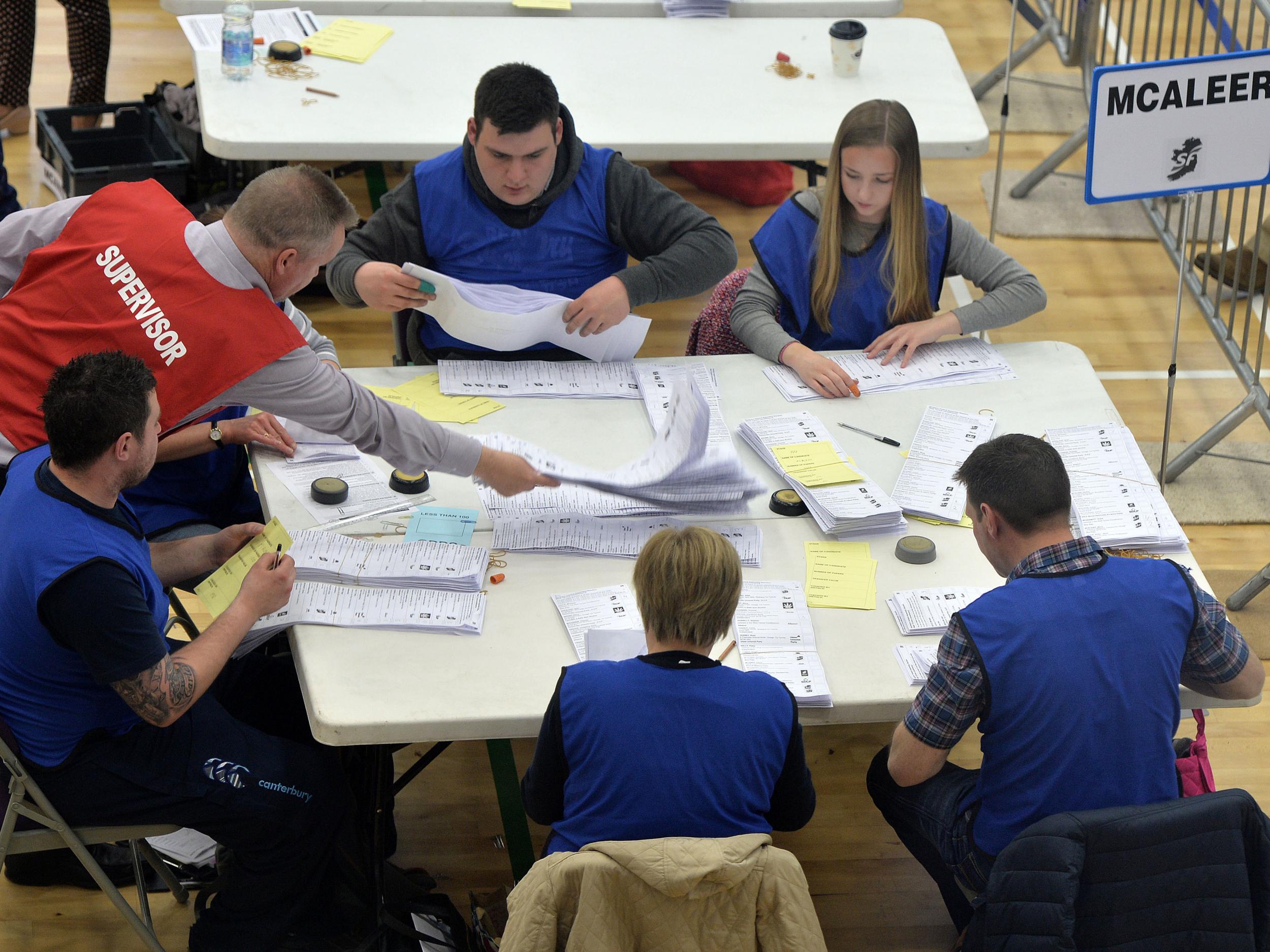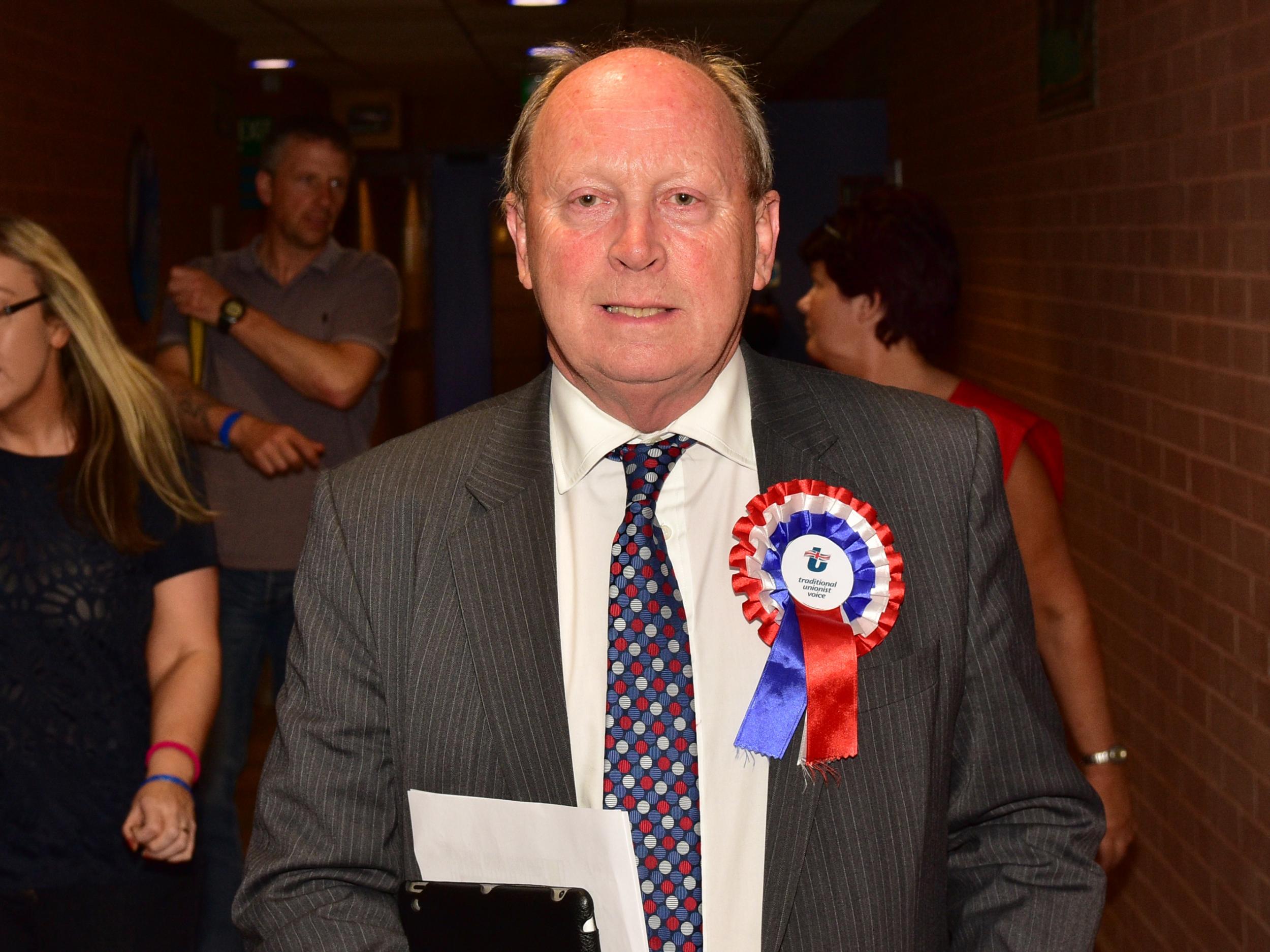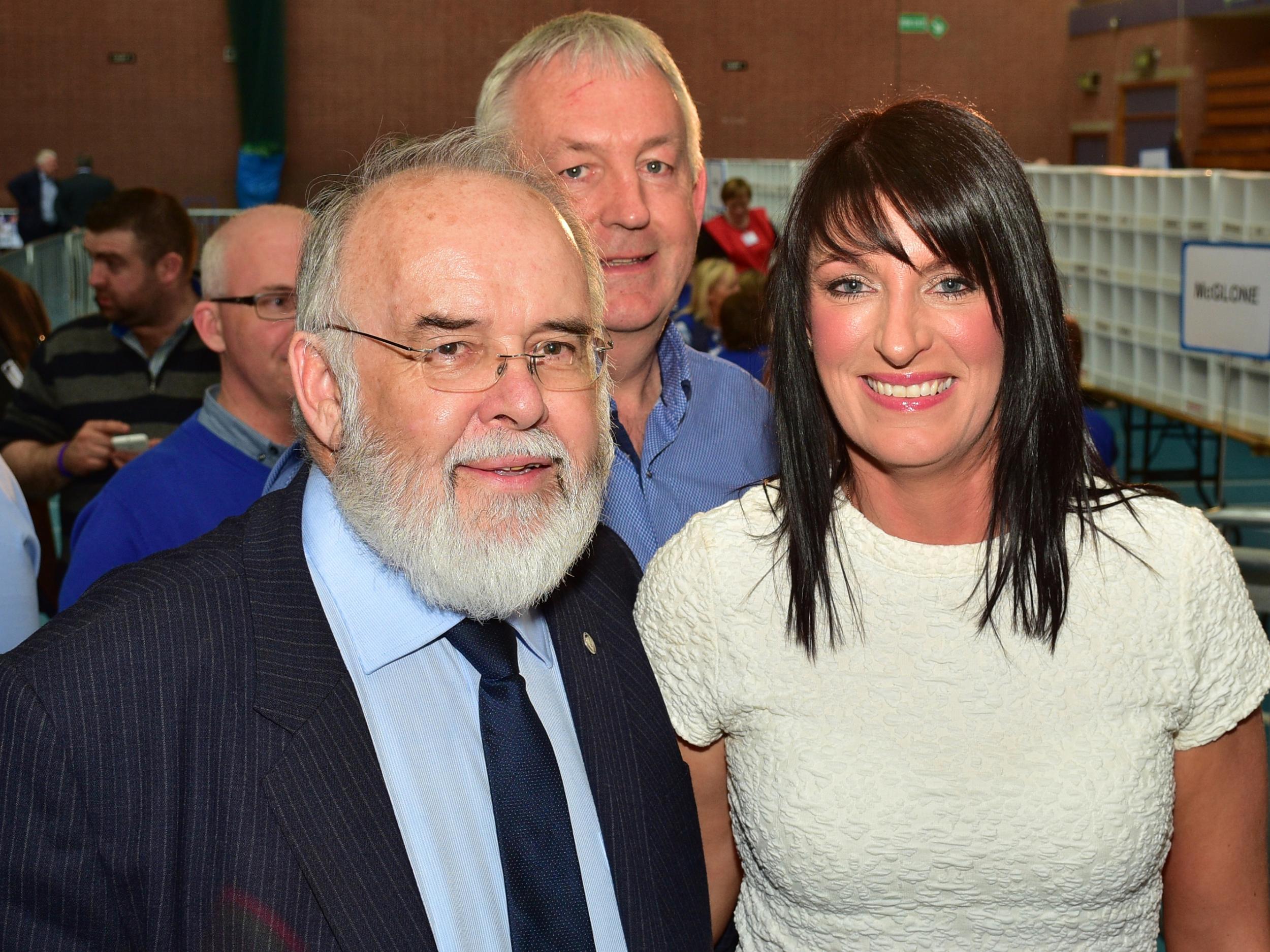Northern Ireland election: DUP remains largest party after winning 38 seats
Democratic Unionist leader, Arlene Foster, has praised her party’s 'tremendous' performance

Democratic Unionist leader, Arlene Foster, has praised her party’s “tremendous” performance in the Northern Ireland Assembly election, after they remained the largest party in country, winning 38 seats out of 108.
Saturday's results after a two-day ballot count left the Democratic Unionists Party (DUP) on top with an identical number of seats to the 2011 election, while the Irish nationalist party, Sinn Fein, who had hoped to overtake their rivals, lost one seat, retaining 28.
Many of the main parties held their seat strength, however there were noteworthy victories for some of the smaller parties, with the People Before Profit Alliance (PBPA) and the Green Party both winning two seats each.

Jim Allister, leader of the TUV, retained his seat, though remains the only MLA in his party.
The Ulster Unionists also retained the same number of seats they gained at the last election, finishing with 16. The SDLP lost two seats to take 12 and the Alliance Party won eight.
The result leaves the Democratic Unionists and Sinn Fein sharing control of the 108-member assembly. Ms Foster, who was victorious in her own Fermanagh and South Tyrone constituency and will continue as First Minister, said: "It has been a tremendous election and I feel very energised by the fact the people have put their trust in us.

“It's a strong endorsement of the direction of travel. We set out a five-point plan for a safer, stronger Northern Ireland, that is what have discussed right across the country as I criss-crossed across the country.”
Gaining more than 30 seats is significant for the DUP as it gives the party extra power in Assembly legislation.
Sinn Fein Deputy First Minister Martin McGuinness said he was pleased with his party's performance, saying it had to be seen in the context of "challenges" faced, referring to the economic downturn and UK Government "austerity policies".

"That is pretty remarkable performance given the challenges we have faced over the course of the last Assembly term," he said.
Thursday’s election saw 276 candidates stand for 108 seats in Northern Ireland’s 18 constituencies. Overall, 703,744 people voted.
The turnout had dipped slightly from the last assembly election at 54.91 per cent compared to 55.64 per cent in 2011.
Additional reporting by Press Association
Join our commenting forum
Join thought-provoking conversations, follow other Independent readers and see their replies
Comments
Bookmark popover
Removed from bookmarks